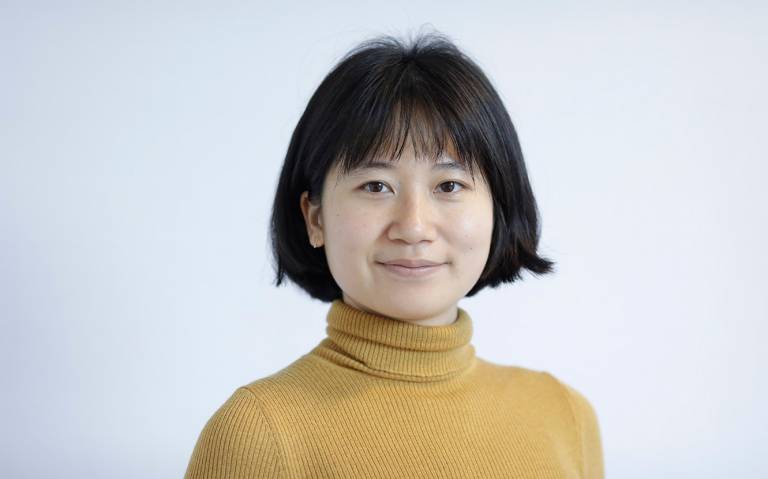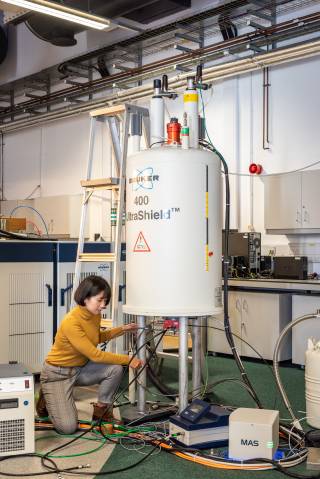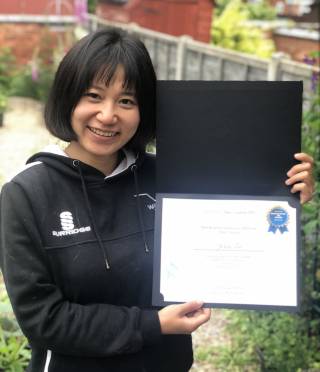Women and Girls in Science 2023: Jierong Luo
10 February 2023

This International Day of Women and Girls in Science, we're showcasing three members of our fantastic community.
We asked Dr Jierong Luo, Research Fellow in MRI Electromagnetic Tissue Properties Mapping, what inspired her to choose this field, what are the biggest challenges facing women pursuing a career in science and what advice she would give to girls thinking about getting into STEM.
 What is your role and describe what a typical day at work looks like?
What is your role and describe what a typical day at work looks like?

I am a postdoctoral researcher and scientist in MRI (magnetic resonance imaging) research. In my current role in Prof Karin Shmueli's MRI Research Group, I work in a team developing novel MRI techniques that can reveal the susceptibility and conductivity of the tissue. On a typical day at work, I spend lots of time developing and optimising algorithms for processing and analysing the MR images, and every now and then my work also involves acquiring MR scans at the hospital.
What makes you excited about your job?
I feel passionate about this job because it often encourages me to learn, create, and explore the unknown, for improving current techniques and overcoming challenges. It is also meaningful and fulfilling to me to investigate MR-EPT (electrical properties tomography) techniques, that have the potential to improve the diagnosis of neurodegenerative diseases, such as Alzheimer's.
What inspired you to work in this field?
I have always wondered how human brains work. It seems to be one of the most important organs where our minds and intelligence reside, yet so little is known. My curiosity towards the brain's structures and functions has grown through my education, and I have been fascinated by MR physics and modern MRI techniques quickly after I came to study it in my postgraduate research. This research field seems to be a perfect ground for me!
What do you think is the biggest challenge for women in science?
There indeed exists structural inequality that has been a challenge for females in science, but sometimes it is more challenging for me to realise and overcome the unconscious bias within myself. I have seen many female scientists and myself feeling the need to perform perfectly and being overprepared to show our competency.
What has been the highlight of your career so far?
I have always been enjoying conferences where scientists from different fields come together to share their research and ideas. It was a memorable moment for me to give a talk at the International Conference on Alzheimer's and Parkinson's diseases in 2022, presenting my work to a wide range of researchers and clinical scientists.
 What is the best piece of advice that you have received that has helped you in your career?
What is the best piece of advice that you have received that has helped you in your career?

Making mistakes is absolutely normal, and sometimes necessary. When my supervisor and fellow colleagues told me, it was an awakening moment for me during my PhD. Within a supportive research community, I have slowly but gradually realised that research is a human process and it is imperfect, and great science evolves from these mistakes.
What advice would you give to young girls thinking about going into science?
If you are passionate about science (or anything), your enthusiasm will eventually drive you there. You could take any opportunities to find out what a real career in science might look like, by going to open days and talking to scientists, and could give it a try yourself. If you enjoy it, science is like a never-ending adventure, and it always welcomes curious minds!
Is there a female scientist who has inspired you?
In fact, there are many female scientists who have inspired me to go into and continue a career in science. Luckily and coincidentally, the research groups I have studied and worked in are all led by female scientists, Prof. Xiaoxiao He, Prof. Joanna Collingwood, and Prof. Karin Shmueli in the current group. They are not only professional and remarkable in their fields, but also supportive and inspiring - they form a scientist role model I would like to become.
 Close
Close

